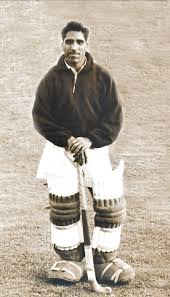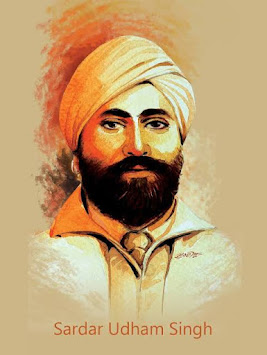Here are the key details about Shankar Lakshman:
1. Early Life and Background
- Full Name: Shankar Lakshman
- Date of Birth: January 1, 1936
- Place of Birth: Nagapattinam, Tamil Nadu, India
- Nationality: Indian
Shankar Lakshman grew up in a time when field hockey was a dominant sport in India. His natural talent and passion for the game emerged early in his life. He made his mark as a goalkeeper during his early playing days in local and regional tournaments.
2. Career and Rise in Indian Hockey
Shankar Lakshman was known for his extraordinary reflexes and unparalleled ability to save goals, particularly in penalty corners, which made him a formidable goalkeeper. He played for the Indian national hockey team during a golden era of the sport in the 1950s and 1960s.
-
Indian National Team: Lakshman made his debut for the Indian national hockey team at a time when India was still a dominant force in the world of hockey. He represented India in several important international tournaments and played a significant role in numerous victories.
-
Position: GoalkeeperAs a goalkeeper, Shankar Lakshman was known for his agility, quick reflexes, and calm demeanor under pressure. He was the anchor for the Indian defense and was instrumental in saving numerous penalty corners and crucial shots on goal.
3. Achievements and Contributions to Indian Hockey
-
Olympic Games:Shankar Lakshman’s biggest achievement came during the 1964 Tokyo Olympics, where he played a pivotal role in helping the Indian team win the gold medal in hockey. This victory was part of India's rich Olympic legacy in the sport. Lakshman’s performances as a goalkeeper were crucial to the team’s success, and his role in the final was especially important in maintaining the Indian defense.
- He is particularly remembered for his outstanding performance during the final match of the 1964 Olympics, where India defeated Pakistan 1-0 to clinch the gold. His heroic saves and calm under pressure earned him the nickname “The Wall.”
-
Asian Games:Lakshman was part of the Indian hockey team that won gold medals at the 1966 Asian Games in Bangkok, Thailand. His performance in the tournament was a testament to his consistency and skill as one of the top goalkeepers in the world.
-
International Tournaments:In addition to the Olympics and Asian Games, Shankar Lakshman represented India in numerous other international tournaments, where he proved to be one of the finest goalkeepers in world hockey. His shot-stopping ability and his leadership in goal were essential to India’s success in various competitions.
4. Legacy and Impact on Indian Hockey
Shankar Lakshman is remembered not just for his skill as a goalkeeper but for his leadership qualities and his ability to inspire his teammates. His performances in critical moments have earned him a place among the legends of Indian sports.
-
Toughness and Resilience: Lakshman was known for his mental strength, a key attribute for any goalkeeper. He would often face repeated waves of attack from opposing teams and yet manage to stay focused, blocking shot after shot. His resilience made him a dependable figure for the Indian hockey team.
-
Influence on Future Goalkeepers: Lakshman’s legacy continues to influence future generations of hockey goalkeepers in India. His techniques, style of play, and the role he played in India's successful campaigns have been studied and revered by aspiring goalkeepers.
5. Retirement and Post-Hockey Life
After retiring from active international hockey, Shankar Lakshman’s contributions were acknowledged through various awards and honors. However, much like many other athletes of his time, his post-retirement life was less documented. He did not receive the level of recognition in terms of awards and endorsements that modern athletes might experience, but his place in Indian hockey history is firmly secured.
6. Recognition and Honors
-
Padma Shri: Lakshman was awarded the Padma Shri (India's fourth-highest civilian award) for his contributions to Indian sport and hockey, cementing his legacy as one of the country’s greatest sports figures.
-
Legendary Status in Hockey: Though not as widely known globally as some of the other greats of the game, Shankar Lakshman is widely regarded as one of the finest goalkeepers in the history of the sport. His performances in the 1964 Olympics remain a benchmark for goalkeepers worldwide.
7. Shankar Lakshman’s Style of Play
-
Shot-Stopping Ability: Lakshman’s key strength as a goalkeeper was his ability to stop shots from opponents, particularly during penalty corners. He was known for his quick reflexes and incredible agility, even under high-pressure situations.
-
Calm Under Pressure: Another aspect of his game was his calm demeanor. Whether it was during tight matches or in high-stakes penalty shootouts, Lakshman never seemed to lose his focus, which was crucial for India’s success during his time.
-
Tactical Awareness: As a goalkeeper, Lakshman had a deep understanding of the game’s tactics and was always aware of the positioning of opposing players. His intelligence on the field made him more than just a shot-stopper; he was also an organizer for the defense.
8. Shankar Lakshman’s Impact Beyond the Field
Though not as widely celebrated in the public sphere as some of his contemporaries, Shankar Lakshman’s impact on the field of Indian hockey is undeniable. He continues to be a source of inspiration for goalkeepers across the country. His commitment to the sport, his leadership, and his never-say-die attitude make him an important figure in the history of Indian sports.
In Summary:
Shankar Lakshman, also known as "The Wall", is remembered as one of the greatest hockey goalkeepers in Indian history. His contributions to the Indian national team, especially during their 1964 Olympic gold medal victory, have left an indelible mark on the sport. With a career full of remarkable saves, leadership, and resilience, Lakshman’s legacy as a goalkeeper continues to inspire future generations of players in India and beyond.





%601.jpg)



